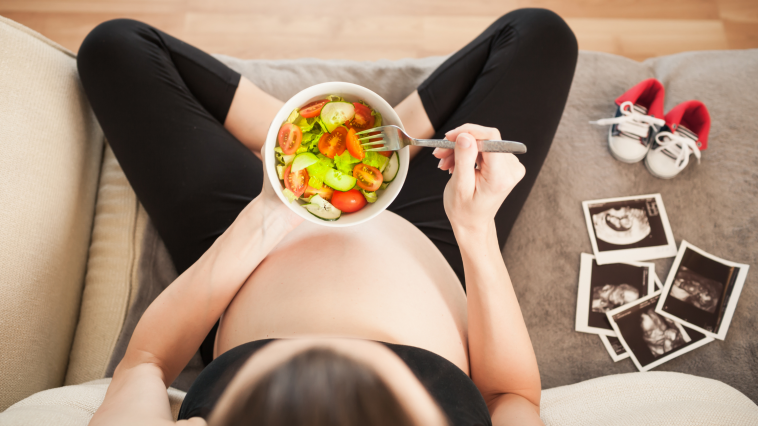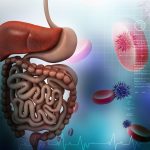When you learn what you’re expecting, immediate concerns will likely pop into your head. How do I consume? Do I need to be active? Do I have to think about you thinking that my eating sushi days are over? The importance of taking care of yourself is more crucial than ever. However, it’s not that difficult to master. Here’s how to keep an ideal pregnancy by eating well and vitamins, healthy habits, etc.
Nutrition
Consuming a healthy food plan during pregnancy can lead to healthy brain development and ideal birth weight and reduces the chance of developing many congenital disabilities. A balanced diet can also lower the risk for anemia and other unpleasant pregnancy-related symptoms, such as fatigue or morning sickness.
A well-balanced pregnancy diet includes:
- protein
- vitamin C
- calcium
- Fruits and vegetables and fruits
- Whole grains
- iron-rich foods
- sufficient fat
- Folic acid
- Other nutrients, like choline
Avoid Junk during pregnancy
To shield your child and you from a parasitic or bacterial disease, such as the disease known as listeriosis, ensure that all milk, cheese, and juices are pasteurized.
Avoid eating meat served at the hot dog counter or deli counter until they have been thoroughly cooked. Also, avoid the refrigerated smoking of seafood and seafood and meat that is not cooked properly. If you or anyone within your household has had an allergy in the past, talk to your doctor about any other food items to stay clear of.
Prenatal vitamins are important
Most of the nutrients required during pregnancy must be derived from food sources. However, vitamins for prenatal use can play a significant role in filling in any gap. It can be challenging to prepare nutritious meals each day.
Folic acid (folate) is a B vitamin that is essential for women who are pregnant. Folic acid supplements consumed before pregnancy and throughout those first twelve weeks have been shown to reduce the chance of having a baby who has neural tube defects.
Choline Trusted Source is a different vitamin that could help prevent congenital disabilities in the spine and brain. The majority of prenatal vitamins do not contain many or even any choline. Discuss with your physician the possibility of including a Choline supplement.
Exercise is necessary to maintain pregnancy
moderate exercise is not just to be safe for pregnant women. It’s recommended and believed to benefit you and your baby growing.
ACOG suggests aiming for at the very least 150 minutes of moderate-intensity aerobic exercise each week. It is essential to consult your physician before starting any exercise routine, especially if you have any risks.
If you weren’t physically active before becoming pregnant, speak to your doctor about the exercises you can safely do during pregnancy.
For the vast majority of normal pregnancies and pregnancies, exercise could:
- boost the energy levels
- Enhance sleep
- build strength and endurance and strengthen muscles
- reduce backaches
- Help relieve constipation
- to increase circulation
- Reduce stress
Aerobic exercise, such as running, walking, and swimming, can stimulate the lungs and heart and joint and muscle activities, which aid in making and using oxygen.
There are a variety of classes specially designed for pregnant women that aid in increasing strength to improve posture and alignment and improve circulation and breathing. In addition, you will be able to meet other parents to share your experiences!
Squatting and Kegel exercises should be included in the workout routine. The exercises in Kegel focus on the muscles in the perineal region. The exercise is performed the same way as you stop and then start to flow urine.
Weight gain sign of healthy pregnancy
A quick and easy method to meet your nutritional requirements while pregnant is to consume a wide assortment of food items from each group of foods each day.
The process of gaining weight during pregnancy is expected and normal. When your body’s weight was within the normal range before you became pregnant. It is essential to discuss and keep track of your weight and nutritional requirements with your physician during your pregnancy.
Weight gain guidelines can differ for women who are not overweight before conception, those with obesity, or multiple gestations, for example, twins.
The changing of habits is a sign of healthy pregnancy
A healthy lifestyle will directly affect the well-being of your child. It is essential to quit tobacco, drugs, or drinking alcohol. These are associated with grave complications and risks for you and your child.
Alcohol consumption during pregnancy can cause many different issues for the baby in development. The alcohol consumed is absorbed into the fetus’s bloodstream through the mother’s bloodstream.
Drinking during pregnancy can cause fetal alcoholism (FAS). The American Academy of Pediatrics warns that FAS could cause your baby to suffer issues with growth, like being overweight and lacking height, and having abnormalities in their central nervous system.
Drinking alcohol during pregnancy can cause complications, for example:
- error in the course of transport
- premature labor and the delivery
- stillbirth
Smoking cigarettes before the pregnancy begins poses an increased risk of severe harmful effects to a baby who is developing. There’s also ample evidence that smoking cigarettes in pregnancy can be dangerous.
Smoking can affect blood flow and oxygen supply to babies and consequently their growth.
Smoking cigarettes poses a danger for infants born at low weights, that in turn poses the risk of infant death and sickness after birth.
Smoking can also be linked to a variety of complications during pregnancy, such as:
- Vaginal bleeding
- Ectopic pregnancy
- premature placental detachment
- premature labor and birth
If you require assistance in dealing with any issues related to substance abuse, speak to your doctor promptly.
Getting sick is a sign of healthy pregnancy
Apart from the usual signs in the pregnancy process, pregnant women are also prone to specific infections, such as the common cold and the flu.
A pregnant woman is more likely to get sick if she gets influenza (influenza virus). While the flu can make you feel sick, it most likely does not affect the baby’s development.
Some of the most well-known symptoms or illnesses are:
- common cold
- seasonal flu
- runny nose
- upset stomach
It is essential to speak with your doctor about safe treatments to treat any illness during pregnancy. Many commonly used medications or supplements like Ibuprofen or aspirin might not be appropriate during specific periods during pregnancy.
Prevention is the best method to stay healthy and avoid illness. Healthy eating and exercising, ample rest, and regular hand-washing practices can help ensure your family’s health.
The seasonal vaccination against the flu is the best form of defense in the flu season. It is recommended for anyone pregnant.
Women who are pregnant might be at a higher chance of developing complications due to seasonal Swine flu (H1N1) and COVID-19 (according to recent research by Trusted Source).
Women with an asthma history, mainly if it is uncontrolled, could discover that their asthma symptoms worsen when pregnant. This could be because of the increase in levels of hormones that are present in the system.
Discuss with your doctor your medical past. They will be able to tell you if there are any risks to your baby’s health.
Prenatal care is crucial to maintaining a healthy pregnancy
Being present for all prenatal checks will allow your doctor closely watch the baby’s growth during your pregnancy.
It also allows you to speak with your doctor about any questions you’re experiencing regarding the pregnancy. Create a plan with your health care providers to take care of all your symptoms and concerns.




